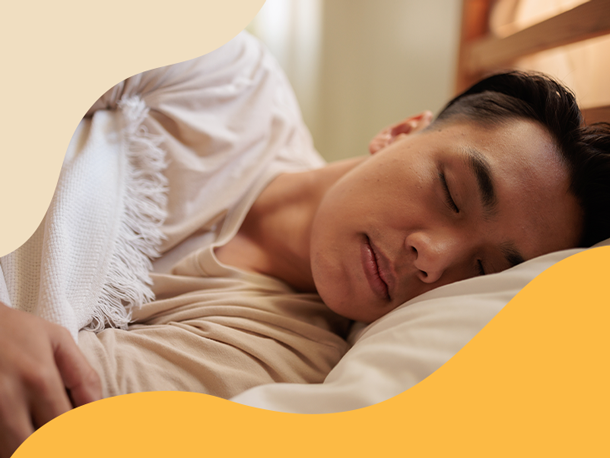For me, it’s a yes.
͏ ͏ ͏ ͏ ͏ ͏ ͏ ͏ ͏ ͏ ͏ ͏ ͏ ͏ ͏ ͏ ͏ ͏ ͏ ͏ ͏ ͏ ͏ ͏ ͏ ͏ ͏ ͏ ͏ ͏ ͏ ͏ ͏ ͏ ͏ ͏ ͏
| |
|
|
| I love sleeping. If it were a hobby, it would be one of my favorites. After I wake up, I can’t wait to be snug in my bed again (it has no reason being that comfy!). |
| I always make sure to get at least 8 hours of sleep, and most nights I get 9. (And I’m grateful that I have a lifestyle that allows me to get this much sleep.) But this doesn’t stop me from waking up tired. What could be the cause of this? Let’s find out!
|
|
|
|
|
|
|
Honk shoo,
Sarah Matysiak
Associate Editor, Healthline
|
 |
|
Written by Sarah Matysiak
July 18, 2025 • 5 min read |
|
| |
|
|
|
|
| |
 |
|
|
| Read this before hitting snooze again |
| Most adults ages 18 to 64 need 7 to 9 hours of sleep. And you need only about 7 to 8 hours if you’re older than this. So, according to the CDC, I’m getting the appropriate amount of sleep for my age.
|
| You should also be able to cycle through the 2 phases of sleep (rapid eye movement [REM] and non-REM) 4 to 6 times each night. These repeat about every 80 to 100 minutes. I must also be cycling through these phases enough times if I’m getting 9 hours of sleep most nights. Then how do you explain my tiredness upon waking up?
|
| I admit: I do spend some time on my phone before bed. *But* I turn night mode on, which makes the screen warmer and emits less blue light (since blue light can disrupt your sleep). I also wear glasses that block this light. Smartphones aren’t the only blue light sources either — TVs, tablets, and anything with an electronic screen are, too.
|
| I rarely drink alcohol or caffeine in the hours before bed, so I know that’s not my issue either. My mattress is slightly outdated, but I feel like I would be waking up with more persistent back and body aches if it were the cause of my tiredness.
|
| The answer could be as simple as a little sleep inertia. This explains that bit of grogginess that hits you first thing after you wake up. It’s a typical part of the waking-up process and occurs because your brain hasn’t fully woken up yet. It’s also easy to fall back asleep during this period.
|
| What I may have mistaken for tiredness from sleeping too much could actually just be explained by my brain just not being ready to wake up.
|
| But sleep duration isn’t the only factor in this equation — sleep quality matters, too.
|
For a restful night’s sleep, you should aim to:
- Go to bed and wake up at the same time every day.
- Keep your room cool, about 60°F to 65°F (15.6°C to 18.3°C).
- Avoid electronic screens (e.g., smartphones, tablets, TVs, e-readers) at least 1 hour before bed, or set them to “night mode.”
- Dim lights a few hours before bed, or use “warm lights.”
- Avoid caffeine, spicy foods, and large meals a few hours before bed.
- Go to bed only when you’re tired.
- Limit daytime naps to 20 minutes or less. Also, try to avoid napping in the late afternoon.
- Learn how to best manage your stress.
|
| If you’re a light sleeper (like me), I also wrote about ways to help you sleep more soundly through the night in a past newsletter.
|
| Keep in mind that the right amount of sleep for you really depends on your daily habits and individual health. You could try sleeping different amounts and seeing which helps you feel your best.
|
| If you aren’t consistently getting enough sleep each night, consider speaking with your doctor and making some lifestyle changes to help you get the shut-eye you deserve.
|
| | | |